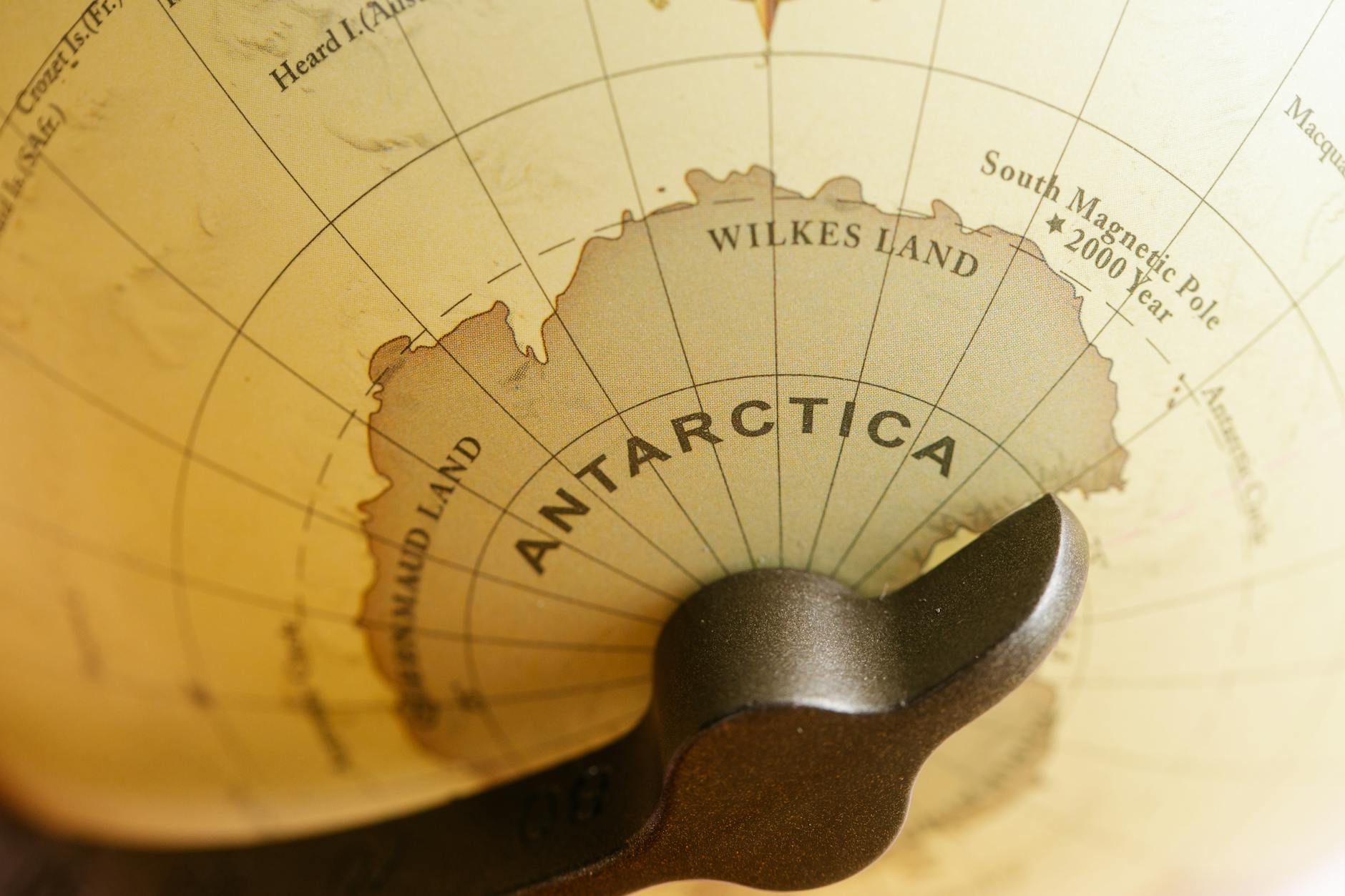Antarctica, the southernmost continent, remains one of the most pristine places on Earth, governed by the Antarctic Treaty System that designates it as a scientific preserve. This unique status limits conventional investment opportunities, focusing on preserving its untouched environment. However, for the astute investor, there are indirect pathways to engage with this frozen frontier, leveraging its limited but significant economic activities and the global interest in its preservation and the challenges it faces due to climate change.
The Economic Landscape of Antarctica
The primary economic activities in Antarctica revolve around fishing and tourism, both operated from abroad due to the continent’s stringent protection under international agreements. While the allure of mineral and petroleum resources exists, the consensus against mining and drilling, due to environmental concerns and logistical challenges, remains strong. Antarctica’s ice-covered terrain and the moving ice streams present formidable obstacles to mining, and the risk of iceberg drift makes offshore petroleum extraction a daunting task.
Despite these challenges, the Southern Ocean’s fisheries, particularly the toothfish industry, offer a glimpse into the commercial activities tied to the region. These fisheries are crucial not only for their commercial value but also for their role in global food security, highlighting the importance of sustainable management of these resources.
Indirect Investment Avenues
Investing in Antarctica doesn’t necessarily mean direct economic activities on the continent. Instead, interested investors can look towards firms that operate with a focus on the broader implications of Antarctica’s preservation and the economic activities it influences. Companies like Antarctica Capital, LLC, specialize in Private Capital (Private Equity, Private Credit) and Real Assets (Infrastructure, Real Estate, Energy Transition), offering a strategic entry point for those looking to invest in the themes that emerge from Antarctica’s global significance.
Similarly, Antarctica Asset Management provides hedge fund and private equity investment solutions, catering to global clients interested in leveraging the economic potentials indirectly related to the continent’s environmental and economic landscape.
Climate Change Investments
With the growing emphasis on climate change, Antarctica stands at the forefront of the global dialogue, its melting ice caps serving as a stark reminder of the urgent need for sustainable practices. Investing in climate change initiatives that have a direct or indirect impact on Antarctica can be a forward-thinking strategy. This includes supporting renewable energy projects, sustainable fisheries, and technologies aimed at preserving cold environments and studying climate change effects.
Navigating the Challenges
The unique challenges of investing in or around Antarctica highlight the importance of innovative thinking and sustainable practices. Investors must navigate the strict regulatory environment, recognizing the balance between economic interests and the imperative to preserve one of the last untouched places on Earth. The focus should be on sustainable, environmentally friendly investments that respect the continent’s ecological significance and contribute to global sustainability goals.
Investing in Antarctica can be approached through various avenues such as private equity firms like Antarctica Capital, LLC, which focuses on investments in private markets and real assets[1]. Another option is Antarctica Asset Management, offering hedge fund and private equity investment solutions[2]. However, direct investment opportunities in Antarctica itself are limited due to the continent’s unique status as a scientific preserve under the Antarctic Treaty System.
For those interested in participating in scientific research in Antarctica, the United States Antarctic Program deploys individuals for various roles, including scientists, artists, writers, and support personnel. Opportunities exist for scientists to conduct research that must be performed in Antarctica[3]. Artists and writers can also apply through programs like the Polar STEAM Program to work in Antarctica[3].
In terms of investment strategies related to Antarctica, firms like Antarctica Capital focus on Private Capital (Private Equity, Private Credit) and Real Assets (Infrastructure, Real Estate, Energy Transition)[4]. Additionally, considering climate change investments related to Antarctica can be a way to indirectly engage with the region’s environmental challenges[5].
Conclusion
While direct investment opportunities in Antarctica are limited by its status as a scientific preserve, indirect investment avenues offer a compelling prospect for those interested in this frozen frontier. By focusing on firms and initiatives that align with the continent’s environmental and economic landscape, investors can participate in the preservation efforts and leverage the economic activities related to Antarctica. As the global community continues to grapple with climate change, investments related to Antarctica’s preservation and sustainable utilization of its surrounding oceans will become increasingly important, offering a unique blend of ethical investment and potential economic returns.
Citations:
[1] https://antarcticacapital.com
[2] https://www.antarcticaam.com
[3] https://www.nsf.gov/geo/opp/opportun.jsp
[4] https://antarcticacapital.com/investment-strategies/
[5] https://tickertape.tdameritrade.com/investing/antarctica-investing-climate-change-15328

Leave a Reply